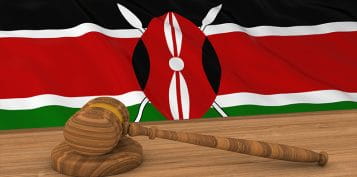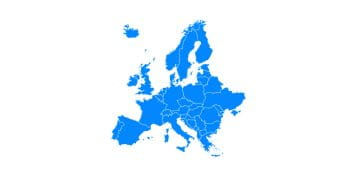Europe Gambling Laws – Legislative Details
All but a few countries in the European Union have been exceptionally receptive to the idea of having some sort of legal and regulated gambling. To where the legality of it would extend depends not on the EU gambling laws but on each country’s internal legislation concerning gambling. Stay with us for an overview of Europe’s gambling laws and learn where betting is legal.
United Kingdom – Most Liberal Law on Gambling in Europe
Brexit didn’t bring a major change in how gambling is conducted in the UK. It remains one of the most liberal territories on Earth regarding gaming opportunities. Players and legislature are so in tune there that the former don’t even need to pay a tax on their winnings. Sports bettors and casino players have free rein on what and how they want to play for real money. Sure enough, everyone involved needs to be of legal age and to only put money in facilities licensed by the UK Gambling Commission such as the top British gambling sites.

However, Northern Ireland is a horse of a different colour. Northern Ireland’s Assembly is the legislature of the country, which has the power to create laws in many areas of governance, including gambling. With the blessing of the Assembly, The Betting, Gaming, Lotteries & Amusements Order of 1985 is still the main piece of gambling legislation in the country. For that reason, competitions, where prize money is at stake, are illegal if the skill is not the deciding factor. This is where sports betting crosses legal boundaries in Northern Ireland – one of the main differences with the UK.
Gambling Laws in Europe as It Stands
As we will see later in the write-up, the European Union has a minimal impact on the lawmaking of country members. So, it’s not about the EU gambling laws at all, but how and which countries manage the matter of contention. There are two main groups – countries refusing to enact laws allowing gambling and such with a mandatory licensing procedure, after which a remote or in-person gaming service becomes approved.
European Countries with Legal Regulation
- Netherlands – Joined the fray in 2020 when the Remote Gaming Bill spelt the end of the state monopoly that was in power previously. Now, foreign operators are welcome to apply for a licence, but some of the major players are not in a hurry to join this particular market because revenue taxes of up to 29% are in play.
- Sweden – As of 2019, Svenska Spel is no longer the sole operator of gambling facilities in the country. Sweden started opening up to new opportunities and letting other gaming firms apply for a gaming licence. Much like the rest of Europe’s gambling laws, those of Sweden don’t allow the advertising of non-licensed gaming offerings.
- Germany – There has been a significant development in recent years regarding online gambling in Germany. Presently, there are 33 licensed sports betting operators, and even more are awaiting approval. Some online casino games are now subject to licensing, and that makes players optimistic about the future.
- Denmark – The Danish Gambling Authority sets the pace in the market for games of chance and sports betting. Though the market was largely liberalised, the Danish Act on Gambling makes Danske Spil the only entity authorised to organise and sell tickets to lottery games.
European Countries with a Ban on Gambling
The laws on gambling in Europe make it so that only a few countries don’t have a legal framework instituting a regulatory body. Even when that’s the case, it’s only partially true because of one or another type of gambling not being regulated. On a bigger scale, we could enumerate some countries in East Asia and Africa where gambling is illegal altogether, but we won’t because the focus is Europe’s gambling laws.
Online Gambling Laws in Europe
To set the record straight, we should say that the European Union is not an arbiter of gambling-related matters in member countries. The Union sets some rules which are meant to guarantee that each member respects the fundamental freedoms as defined by the Treaty on the Functioning of the European Union. Aside from that, it doesn’t weigh in on decision-making on important issues and doesn’t determine where it’s legal to gamble online.
Countries with a State Monopoly on Gambling Services
An interesting case was the state monopoly on gambling in Germany, which was broken up after the Court of Justice of the European Union (CJEU) ruling. In 2012, private sports betting providers started entering the German market and improving the overall quality of the available services.
Nowadays, the gambling websites in Germany have all essential features to make betting with real money possible. This, however, is just one success story where the laws on gambling in Europe made a positive change. In spite of the example set by Germany, other countries are not ready to sever ties with the monopolistic regime.
- Denmark
- Poland
- Norway
In a sense, Norway is not on a par with the online gambling laws in Europe because the state has the exclusive rights to offer this kind of service. Naturally, this is not as good of an option as what the free market has to offer, and many Norway players aren’t too happy about it. Be that as it may, there are players visiting the state-sponsored casino sites and placing wagers there. Others prefer to gamble at the best roulette sites for Norwegians.
Countries with a Licensing System
Countries like Denmark have some of the most permissive gambling laws in Europe. For example, under the Gambling Authority’s enforcement standards, operators that don’t offer their service in the Danish language or accept Danish kroner don’t need a gaming licence. That is because they are not specifically targeting residents of the country and, therefore, users finding their websites sits right with the regulator. If we look, however, at the top Danish roulette websites, we see they do offer bonuses in kroner.
However, not all legislatures wear the same rose-coloured glasses, mainly because it’s a matter of money – non-licensed firms don’t pay taxes. And if there is no universal law on gambling in Europe, who else holds power to assimilate the leaking tax money if not the government? Here are some countries in the European Union with a licensing system producing legal and regulated gambling operators.
| EU Country | Licensing Body |
|---|---|
| ⭐ Austria | Ministry of Finance |
| ⭐ Bulgaria | National Revenue Agency |
| ⭐ Belgium | Gambling Commission (Kansspelcommissie) |
| ⭐ Denmark | Danish Gambling Authority |
| ⭐ Germany | Joint Gambling Authority in Saxony-Anhalt |
| ⭐ Italy | Agenzia Dogane e Monopolio di Stato (AAMS) |
| ⭐ Netherlands | Gaming Commission (Kansspelautoriteit) |
| ⭐ Poland | Ministry of Finance |
| ⭐ Spain | National Gaming Commission |
On the whole, licensing and regular audits seem to be the most constitutional way for most European countries to integrate the different forms of gambling. The majority of the time, a structure similar to the UK Gambling Commission takes charge of the enforcement of the law. The commission is re-assembled after a period of time after the election takes place. The licences issued by a certain commission are also active for a limited period of time, after which they are rendered invalid if not renewed.
Countries that Block Unlicensed Operators
Talking about Europe’s gambling laws, we can’t help but mention how Switzerland deals with unlicensed operators. There’s an internet ban acting like a nationwide firewall blocking the access to outside operators and such that are not licensed. Practically this is not something new for the Minnesota gambling laws or the rest of the United States for that matter but is not observed that often in Europe. The good news is that Switzerland’s best roulette casinos are fully accessible to locals.
Money Laundering and Underage Gambling Prevention
What the licensing system does is it puts a target on the backs of operators with devious intentions – be it money laundering, fraudulent operations, or not paying due taxes. Firms that do business in a jurisdiction without the permission of the authorities are likely up to no good. Even licencees are not above suspicion. That’s why one of the main functions of the regulatory bodies is oversight and regular checks.

But what are the dangers of having illegal operators? We, for one think that casino money laundering is one of the clear and present dangers of every growing industry. This and underage gambling are what most of the state monopolies are allegedly trying to avert. We wish them all the best but also think that limitations shouldn’t stand in the way of provenly legit operators such as the best roulette sites.
FAQ About Gambling Laws in Europe
In the following section, we will correct some common misunderstandings about the online gambling laws in Europe and set the record straight on other topic-related matters. As always, don’t hesitate to contact our team if there’s something you want to ask about that we don’t cover here.


